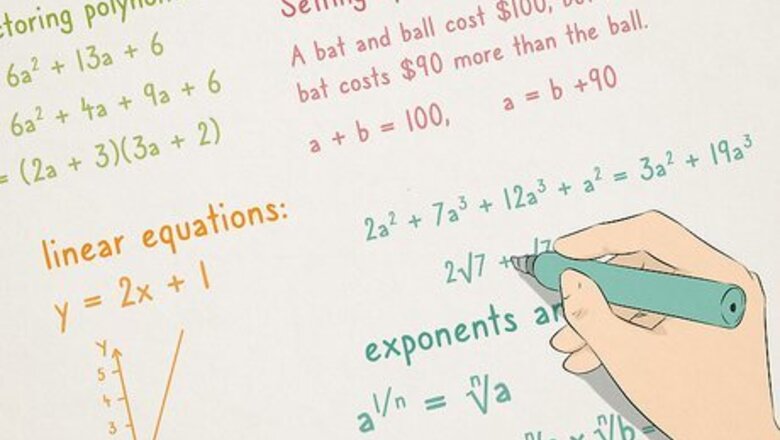
views
Prepping for Chemistry
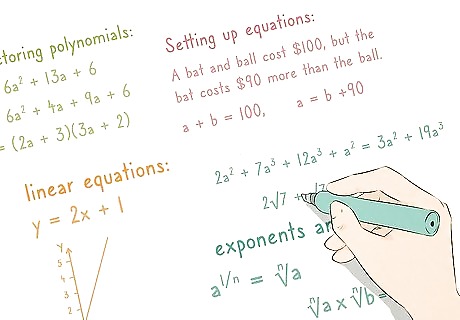
Brush up on your math. There are going to be a number of formulas and equations that you need to solve in order to learn chemistry. If you can't remember how to solve logs or quadratic equations, it's a good idea to review some algebra problems. They will help you to do similar problems in your chemistry coursework. Some of the match concepts you should familiarize yourself with include: Algebraic equations (writing and solving them) Exponents Negative numbers Scientific notation Fractions Logarithms
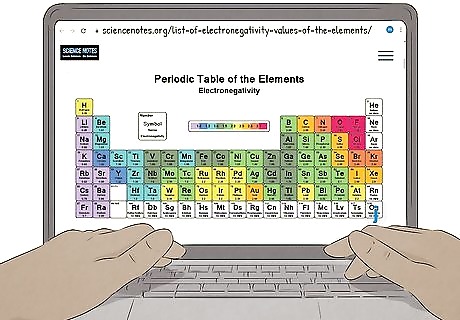
Learn to read and understand the periodic table and its trends. Learning the elements is essential to success in chemistry. Just as you would struggle with math if you did not know the difference between numbers, it is vital to learn how to read and understand what is on the periodic table. You will also need to understand how the trends of the periodic table work to learn more complex concepts in chemistry. Some important trends to learn about include: Electronegativity Ionization energy Atomic radius Electron affinity

Study all the core concepts and learn how to solve problems step by step. This would begin with understanding the metric system, the scientific method, chemical nomenclature and atomic structure. The reason many people find chemistry difficult is they do not fully understand these fundamental concepts before trying to study more advanced subjects. Many of the fundamental concepts of chemistry can be learned through university websites that provide learning materials free. You can also find helpful guidebooks, such as SparkNotes or the "For Dummies" books, at your local bookstore. Write concepts out by hand. Studies have shown that when you write by hand you're more likely to remember the concepts.
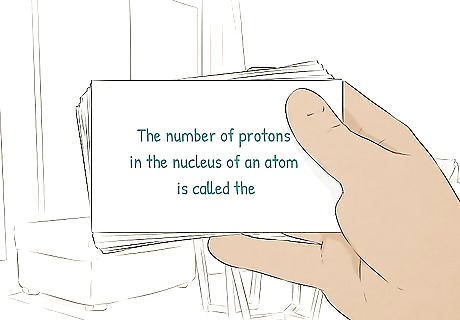
Make flashcards. Anytime you learn a new word or concept, make a flashcard for it. This is great for the periodic table as well as many other principles. Go through the flashcards several times a week to keep the information fresh in your mind.

Learn mnemonic memorization techniques. Try thinking of each element as a different symbol, such as an apple or a football. It can be anything you can picture in your mind when you think of the element. It may seem counter-intuitive, but by creating strong associations you will have an easier time remembering information.
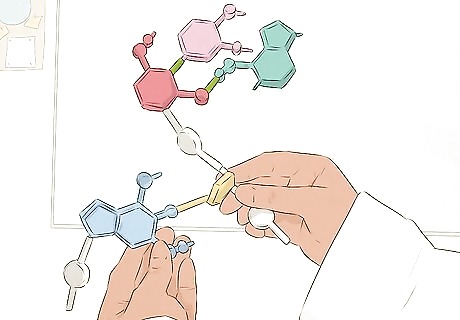
Think three dimensionally. Use visual aids to help understand the texts. You are trained to read the textbook with 2D drawings of molecules, but keep in mind that chemistry is in the 3D world. Use a 3D model or train your mind to picture any molecular structure in 3D. The University of Liverpool runs a website called ChemTube 3D that has free interactive animations and structures for many chemistry concepts. It will even run on your phone or tablet.
Reading Textbooks

Choose a quality textbook that covers all the important concepts. Don’t go for a book because it seems like it is an easier text. You may just feel like you have learned chemistry without really understanding the essential principles. To find a good textbook, take a look at some university bookstores and see which texts their professors prefer.
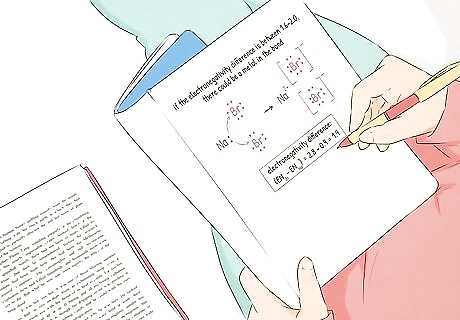
Solve text questions as you encounter them. Practice your problem solving skills by solving textbook problems as you come to them. These problems are inserted to solidify your understanding of the text. Work the problems until you can get the right answer and understand the steps that got you there.
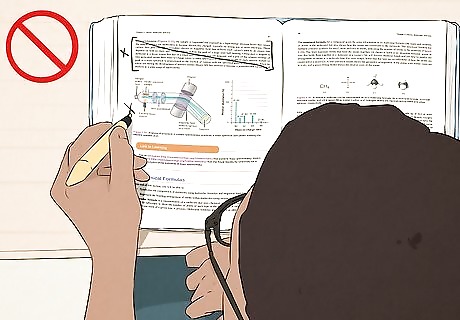
Don’t skim the text. You need to understand the principles. If something doesn’t seem right, take the time to figure it out. Use the index to help you find answers to things you don’t understand. If you're still having trouble, try to find a tutor or a friend who's better at chemistry to help you out. You can also ask your teacher or professor. Write down any questions you think of while reading the textbook and ask your teacher or professor the next day.
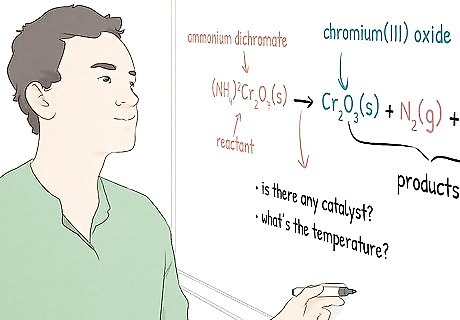
Ask yourself questions about the formulas. When you learn a new formula, ask yourself questions to be sure you understand the concept. Memorizing the formulas won't help you to apply them properly in lab or during exams. Ask yourself the following questions when learning a new formula: What system or change does this formula describe? What do the variables mean and what are their units? (Units can help you to understand what you need to do next.) When and how should this formula be applied? What is the significance?
Experimenting with Labs
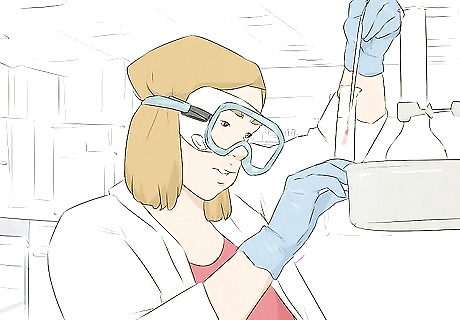
Practice the concepts. Getting a chance to physically create the abstract concepts of chemistry in a lab will help to build a stronger understanding. Some people will find they have an easier time grasping the lesson when they are doing it instead of reading about it.
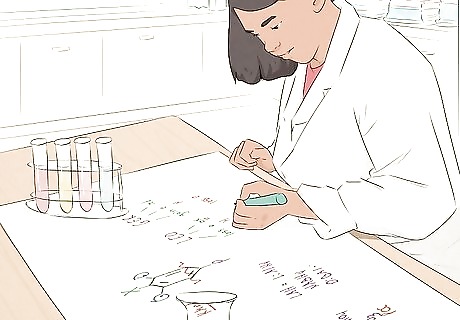
Try to see links between lab studies and content in your reading and texts. If you are taking a class, the labs are designed to support your current lessons and lectures. Pay close attention to pre-lab and post-lab assignments, as you will likely encounter the information on an exam.

Practice scientific methods. Chemistry is ultimately a science performed in a lab. Seize the opportunity to learn hands-on by experimentation. It will give you a chance to brush up on your knowledge of measurements and equations. It can even be fun.
Developing Good Study Habits

Study for at least one hour every day. Reviewing your materials daily will help solidify your knowledge. Studying for a shorter amount of time every day for a week will give you better results than studying the whole day before a test. Just like athletes practice their sport every day to get better, you have to do the same to learn and get better at chemistry. Chemistry concepts build on each other, so if you do not fully understand a concept, then you won’t understand other concepts that build on that concept.
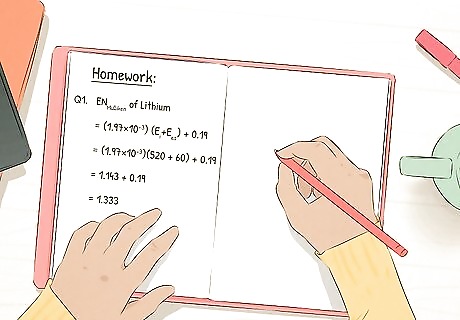
Complete all of the assigned homework. The homework for chemistry class is essential to helping you learn the concepts and pass the exams, and it may also comprise a large portion of your overall grade. If you do not complete all of the homework, then you will most likely struggle to understand the concepts and you may also fail the exams. Make sure to complete and submit all of the assigned homework on time. If you don’t understand how to do the homework, arrange to meet with your professor during their office hours for help.

Attend every class. Even though attendance may seem optional in a college level chemistry course, skipping even 1 class will put you behind and affect your ability to understand the concepts. Make sure that you attend every class and do not skip a class unless it is an actual emergency or you are too sick to attend. If you must miss a class, arrange to get the notes from someone in attendance that day. Exchange numbers or email addresses with a couple of classmates early in the semester to ensure that you will have someone to contact. Also, make sure to email your professor to let them know you will not be there that day. They might be willing to let you take any in-class quizzes during their office hours. You can also visit them during their office hours to ask questions and get additional help if needed.
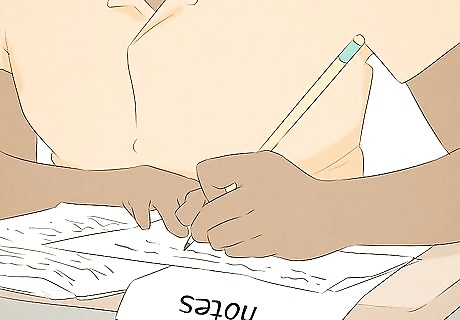
Take good notes. Writing down important information will help you to remember it. If you are taking a class, write down all the important concepts from a lecture. Write down central ideas in your textbook, too. Even if you feel like you know it, writing it down will help you to remember it later.

Work with a study buddy. Two heads are better than one. Learning is much easier when you have someone taking the journey with you. If you ever struggle with a lesson they may be able to help you understand it by explaining how they figured it out. Likewise, you might reinforce your own knowledge by explaining concepts to them.

Talk to your professor. Your teacher or professor will have office hours. Go visit them and ask questions about elements of the material that you don't understand. Teachers are happy to give students a little extra help if they ask. Just don't ask your question at 10:45PM the night before your exam and expect an answer. Your professor may also give you a copy of an old exam to look at. This will help you determine the type of questions you may see on your exams, but it won't tell you exactly which specific questions you'll have to answer.

















Comments
0 comment